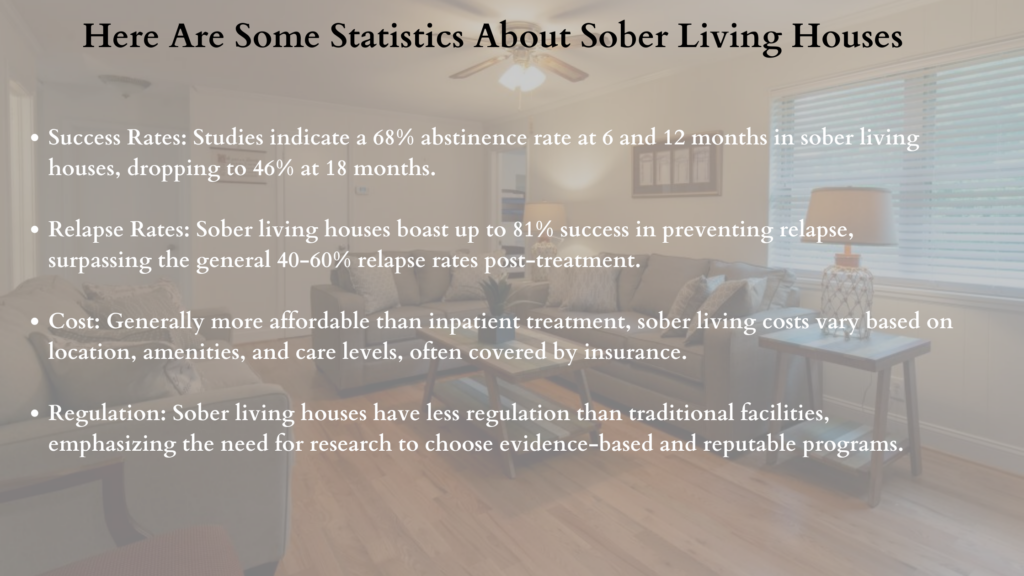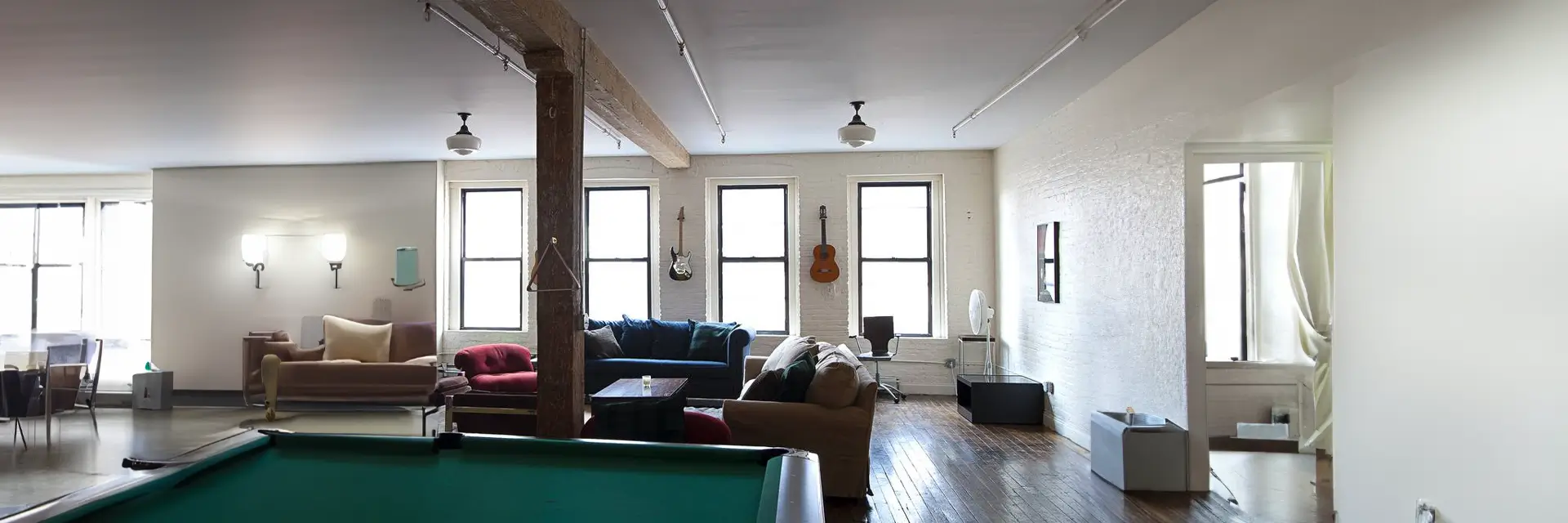Beginning the path to recovery from addiction is a brave and commendable choice. A crucial part of this journey is finding the right sober living house that offers a supportive environment for transitioning to a sober lifestyle. With so many options available, it’s important to know how to choose the best sober living arrangement.
This guide is designed to provide valuable insights into the process of “How to Find a Good Sober Living House” We’ll delve into essential strategies, offering a glimpse into the experiences, benefits, and challenges that come with this critical phase of recovery.
By understanding these aspects, we hope to empower you to make informed decisions that will help you achieve a successful and lasting recovery.

How to Find a Good Sober Living House?
Starting the search for an appropriate sober living house is a crucial step in your journey toward lasting recovery. With numerous options available, it’s important to approach this decision thoughtfully. Here’s a simple yet professional guide on how to find a good sober living house, offering key strategies to help you select a supportive environment that aligns with your goals for a sober and fulfilling life.
1. Conduct Thorough Research and Seek Recommendations:
Begin by researching sober living houses in your desired location. Ask for recommendations from healthcare professionals, counselors, or support groups. Insights from those with experience or expertise can help you narrow down your options.
2. Check Accreditation and Licensing:
Ensure that the sober living house is accredited and licensed. Accreditation means the facility meets specific standards, providing a safe and structured environment. This is crucial for ensuring the quality of care and support offered to residents.
3. Assess Staff Qualifications:
Take a look at the qualifications and training of the staff, including counselors and support personnel. A well-trained and experienced team is important for providing effective guidance and support during your recovery journey.
4. Look for Structured Programs and Support:
Choose a sober living house that offers structured programs tailored to residents’ needs. These programs may include counseling, group therapy, life skills training, and strategies to prevent relapse. A comprehensive approach increases the chances of a successful and lasting recovery.
5. Visit Potential Houses for a Positive Environment:
Visit the sober living houses you’re considering to assess the living conditions and overall atmosphere. A positive and supportive environment is crucial for recovery. Ensure the facility promotes accountability, peer support, and a commitment to sobriety, creating a space conducive to healing.
By following these simple steps, you can confidently navigate the process of finding a good sober living house. Choosing the right environment establishes the foundation for your ongoing recovery, providing the necessary support and structure for a successful transition to a sober lifestyle.
What are the rules for Living in a Sober House?
Living in a sober house typically involves adherence to a set of rules and guidelines designed to create a supportive and structured environment for individuals in recovery. While rules may vary among different sober houses, common principles include:
1. Sobriety Requirement:
Residents are expected to maintain sobriety throughout their stay. This usually includes abstaining from drugs and alcohol, and residents may be subject to regular drug tests to ensure compliance.
2. Participation in Treatment Programs:
Residents are often required to participate in structured treatment programs, which may include individual counseling, group therapy, and other recovery-focused activities.
3. Household Responsibilities:
Residents typically share responsibilities for maintaining the cleanliness and orderliness of common areas. This may involve tasks such as cleaning, cooking, and other chores assigned on a rotating basis.
4. Curfew and Accountability:
Sober houses often have set curfew times to promote a structured daily routine. Residents are expected to be accountable for their whereabouts and may need to sign in and out when leaving or returning to the house.
5. Attendance at 12-Step Meetings:
Regular attendance at 12-step meetings, such as Alcoholics Anonymous (AA) or Narcotics Anonymous (NA), is often encouraged or required. These meetings provide essential support and encouragement for individuals in recovery.
6. Zero Tolerance for Substance Use:
Sober houses typically have a zero-tolerance policy for any substance use. Violating this rule may result in eviction from the house.
7. Respect for Housemates:
Respect for fellow residents is paramount. This includes maintaining a supportive and non-judgmental atmosphere, as well as respecting others’ privacy and personal space.
8. Employment or Educational Commitment:
Residents may be required to maintain employment or engage in educational activities as part of their commitment to personal growth and responsibility.
9. Regular House Meetings:
Sober houses often conduct regular house meetings where residents can discuss concerns, share achievements, and address any issues affecting the living environment.
10. Exit Planning:
Residents are typically expected to have an exit plan, outlining their goals and steps for transitioning to independent living. This may include securing stable employment, finding a permanent residence, and establishing a strong support network.
It’s important to note that specific rules may vary, and individual sober houses may have additional guidelines. Clear communication and a commitment to the principles of recovery are essential for a positive and supportive living experience in a sober house.
Who should join Sober House?
Sober houses are designed for individuals who are committed to maintaining their sobriety and are seeking a supportive environment to aid in their recovery journey. The following individuals may find joining a sober house beneficial:
Early Recovery and Transitional Support:
Sober houses offer structured environments and peer support, aiding individuals in the early stages of recovery from substance abuse or those completing a formal rehabilitation program as they transition back to everyday life.
Community and Emotional Support:
Sober houses provide a supportive community for individuals facing similar challenges, reducing feelings of isolation. The camaraderie and understanding within the community offer essential emotional support during the recovery process.
Accountability and Structured Living:
Sober houses have rules and guidelines promoting accountability, making them suitable for individuals who require structure and a supportive framework to maintain their commitment to sobriety.
Stable Living Environment and Personal Growth:
For those lacking a stable home environment or seeking personal growth, sober houses offer a safe and structured place for recovery. Residents are encouraged to engage in activities like counseling, group therapy, and pursuing educational or employment goals.
How Much Does a Sober Living House Cost?
The cost of living in a sober house can vary widely depending on several factors, including the location, amenities, and the specific services provided. Here are some factors to consider when assessing the costs associated with sober living:
1. Geographic Location:
The cost of living in a sober house is often influenced by the geographic location. Sober houses in urban areas or regions with a higher cost of living may have higher monthly fees compared to those in more affordable areas.
2. Amenities and Services:
Sober houses with additional amenities and services, such as private rooms, transportation services, or organized recreational activities, may have higher costs. The level of comfort and services provided can contribute to variations in pricing.
3. Level of Structure and Support:
The degree of structure and support offered by a sober house can affect its cost. Houses with more comprehensive treatment programs, counseling services, and structured activities may have higher fees compared to those with fewer services.
4. Accreditation and Quality:
Accredited and well-established sober houses that maintain higher standards may have slightly higher costs. The quality of the facility, experienced staff, and adherence to industry best practices can influence pricing.
5. Duration of Stay:
The length of time a resident plans to stay in a sober house can impact the overall cost. Some sober houses may offer discounted rates for longer stays, while others may operate on a month-to-month basis.
6. Financial Assistance or Insurance Coverage:
Some individuals may be eligible for financial assistance or have insurance coverage that partially covers the costs of sober living. It’s essential to check with the sober house management and insurance providers to understand the extent of coverage.
7. Level of Independence:
Sober houses may vary in terms of independence and rules. Those offering a higher level of independence may have lower costs, while more structured environments with additional services may have higher fees.
8. Included Services:
Clarify what services are included in the monthly fee. Some sober houses may include meals, transportation, and additional support services, while others may have a more basic fee structure.
It’s important for individuals considering a sober house to inquire about all associated costs, payment plans, and any potential additional fees. Transparency regarding pricing and services ensures that residents can make informed decisions based on their financial situation and recovery needs.
How to Choose a Sober House?
Choosing the right sober house is a critical decision that can significantly impact your recovery journey. Here are essential steps and considerations to help you make an informed choice:
1. Research and Gather Information:
Conduct thorough research on available sober houses in your desired location. Utilize online resources, reviews, and recommendations from healthcare professionals, counselors, or support groups.
2. Verify Accreditation and Licensing:
Ensure that the sober house is accredited and licensed. Accreditation indicates that the facility adheres to specific standards, providing a safe and structured environment. Licensing ensures compliance with local regulations.
3. Understand the Rules and Guidelines:
Review the rules and guidelines of each sober house. Consider whether the structure and expectations align with your preferences and needs. Different houses may have varying levels of rules and restrictions.
4. Assess Staff Qualifications:
Look into the qualifications and training of the staff, including counselors and support personnel. A well-trained and experienced team is crucial for providing effective guidance and support during your recovery journey.
5. Visit the Sober Houses:
Schedule visits to the sober houses you are considering. This allows you to assess the living conditions, overall atmosphere, and cleanliness of the facilities. It’s an opportunity to get a feel for the environment and interact with staff and residents.
Choosing a sober house is a crucial step in your journey, but it doesn’t have to be daunting. By following these tips and prioritizing your needs, you’ll find your ideal haven for healing, growth, and lasting sobriety. Take a deep breath, trust your instincts, and step confidently into this next chapter of your life!
Beyond Treatment: Choosing Your Path – Sober Living, Rehab, or Halfway House?
Sober living houses, rehab centers, and halfway houses serve distinct roles in the continuum of care for individuals recovering from addiction. Here are the key differences between these types of facilities:
1. Purpose and Focus:
- Sober Living House: Purpose: Sober living houses provide a supportive and structured living environment for individuals who have completed formal rehabilitation programs or are in the early stages of recovery. The primary focus is on maintaining sobriety in a community setting.
- Rehab Center: Purpose: Rehabilitation centers, often referred to as rehab centers or treatment centers, offer intensive, inpatient treatment programs aimed at detoxification, therapy, and addressing the underlying issues contributing to addiction.
- Halfway House: Purpose: Halfway houses serve as transitional residences for individuals who are leaving a rehabilitation program or correctional facility. They offer a supportive environment while individuals reintegrate into society.
2. Duration of Stay:
- Sober Living House: Duration: Residents typically stay in sober living houses for an extended period, ranging from a few months to a year or more. The focus is on providing a stable environment for ongoing recovery.
- Rehab Center: Duration: Rehabilitation centers offer short-term, intensive programs that may last for a few weeks to a few months. The goal is to provide comprehensive treatment in a structured environment.
- Halfway House: Duration: Residents may stay in halfway houses for a variable duration, often several months, as they transition to independent living. The focus is on gradual reintegration.
3. Treatment Services:
- Sober Living House: Services: Sober living houses do not typically offer formal treatment services. Instead, they provide a supportive community where residents can apply the skills learned in rehab and receive peer support.
- Rehab Center: Services: Rehabilitation centers offer comprehensive treatment services, including medical detoxification, individual and group therapy, counseling, and education on relapse prevention.
- Halfway House: Services: Halfway houses may provide limited counseling and support services but are not intended for intensive treatment. They focus more on fostering a supportive living environment.
4. Level of Structure:
- Sober Living House: Structure: Sober living houses have a moderate level of structure, often with house rules related to sobriety, attendance at 12-step meetings, and responsibilities for household chores.
- Rehab Center: Structure: Rehabilitation centers have a high level of structure, with a daily schedule that includes therapy sessions, educational programs, and activities designed to support recovery.
- Halfway House: Structure: Halfway houses offer a moderate level of structure, with rules focused on maintaining sobriety and gradually reintegrating into society.
5. Role in the Continuum of Care:
- Sober Living House: Role: Sober living houses play a crucial role in the post-rehabilitation phase, offering ongoing support and a transitional living environment to reinforce recovery skills.
- Rehab Center: Role: Rehabilitation centers are the initial phase of formal treatment, providing intensive care to address addiction and related issues.
- Halfway House: Role: Halfway houses serve as a bridge between the structured environment of rehab or correctional facilities and independent living, offering support during the reintegration process.
Understanding the distinctions between sober living houses, rehab centers, and halfway houses is essential for individuals seeking the appropriate level of care based on their recovery needs and stage of the rehabilitation process.
The Bottom Line
In wrapping up this exploration, the odyssey into how to find a good sober living house has not only unfolded a profound panorama of resilience, support, and transformation but has also illuminated the intricate tapestry of daily routines, peer support, and therapeutic interventions. These elements collectively underscore the holistic approach to recovery within the nurturing embrace of communal spaces.
As we draw the curtains on this comprehensive walkthrough, it becomes unmistakably clear that sober houses transcend their role as mere transitional residences. They emerge as sanctuaries where individuals not only rebuild their lives but also forge meaningful connections, fostering an environment where a future unshackled from the chains of addiction can be embraced.
Learning about how to find a good sober living house reminds us of important values like caring, understanding, and community in the journey to long-lasting recovery. We now have a deep appreciation for the strength shown by those taking on this journey.
How might we, armed with these insights, contribute to fostering a society that not only supports but actively champions the recovery journey of every individual seeking solace within the haven of a sober house?










